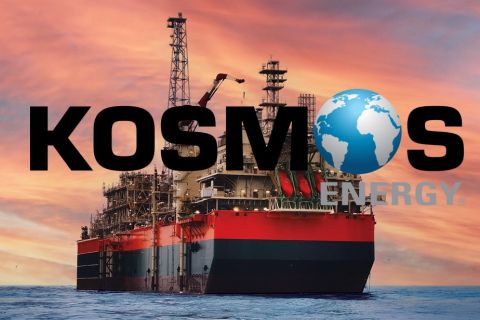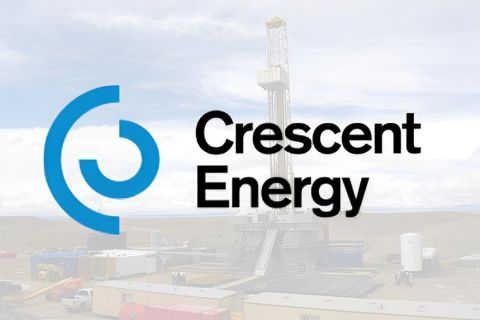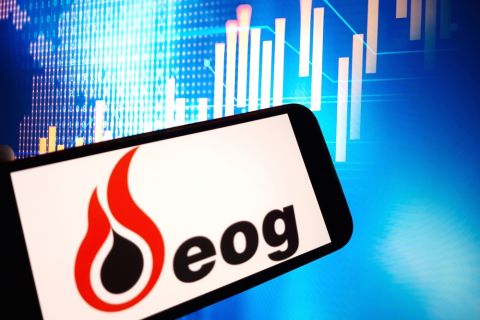
(Source: Shutterstock.com)
[Editor’s note: Opinions expressed by the authors are their own.]
Whether Carl Icahn was right, that Vicki Hollub’s leadership team and board went all-in on Anadarko Petroleum without a shareholder vote because of fear and greed, is best debated by more highly qualified industry analysts.
Or if Hollub might eventually be proven right, that the value of Anadarko’s assets and the timing of a lower commodity value justify what she gave up to secure them, only time will tell.
However, it’s difficult to make a case against Icahn’s opinions given the way Hollub’s team created enough buy-in amongst themselves to pull off a $50 billion bet that oil wouldn’t drop below $40 for any duration.
But this article isn’t really about the psychology of how critical errors gain momentum. Instead, we explore what effective decision-making ought to look like, even during a crisis.
What are the requisite skills needed in order to make better choices? That’s our focus. With an industry drowning in debt and no good rock left to find, the only lever to pull is human capital. Because surviving this crisis almost certainly means that whoever makes the key decisions matters that much more.
Effective Decision-making is Rare
Before we go any further, we should offer this about sound decision-making: it’s rare. Practice at making decisions does not make perfect. And just because we make a lot of them doesn’t mean we’re any good at it. None of us are as good at making decisions as we’d like to think.
This is because we often have a flawed framework for how to solve problems.
An example of this is when we use a takeaway from a past situation and apply it to a current one. It might work. But the truth is we’ve forgotten about the nuances from back then and how the prior outcome was just okay, or subpar.
Another way we fool ourselves is by making decisions with only a small sample size that we apply to a much larger situation. We’re prone to take shortcuts like these all the time.
And even when the results are mixed, what we’ll choose to believe is that we’ve done our job because we acted decisively. After all, common knowledge says that being decisive is a good thing. Only much later do we realize that what’s really happened is we’ve kicked the can down the road.
Here’s the point: Too many of us are unaware of the methodology necessary to make effective decisions. We lack the right framework for it much of the time, or we might even fail to see the need for this framework in the first place. Yet sometimes we’ll survive in spite of making a bad decision because our timing or our assets were better than we were. Sometimes we just get lucky, like Occidental Petroleum is hoping to do with the Anadarko deal.
Seeking Criticism is Essential
Sound decision makers don’t bet on luck. Instead, they rely on proven strategies that work.
Consider a Denver-based E&P company where key decisions there start at the bottom of the org chart, not the top. Instead of looking to confirm what they already think is true, leadership actively seeks out criticism in order to challenge those assumptions. Smart leaders understand that the best way to reach an agreement is often through disagreement.
This private E&P’s COO shared an eye-opening perspective with us: “Sometimes things can really get heated even between leadership and the field staff. But we don’t shy away from it.” He went on to say, "we’ve come to expect and even embrace this tension. It might be the best way to know if we’re actually thinking critically about a problem or just pretending to.”
Effective leaders know when to change
|
|
Here are a few of their best strategies:
|
Questioning what you think you know already isn’t natural, and most people won’t do it. Believe it or not, even the most self-aware leaders won’t detect their own personal biases much of the time. Therefore, they trust their people to provide honest feedback, which they use to challenge their own perceptions of the problem. It’s why they create dissonance before making big decisions, because change always requires tension.
While it ought to be, honest feedback isn’t for everybody. Some of us might feel threatened by criticism, which is why we’ll avoid it at all costs. This is why mediocre leaders avoid controversy and either hope problems will go away or pretend they don’t exist. But sound decision makers seek out criticism because being uncomfortable is just part of their process.
Simplify What’s Complicated
An effective decision maker not only seeks out criticism, but also knows how to simplify what’s complicated. The more complex a situation seems, the more effort that’s required to break it down. It’s just as important to understand what you don’t know as it is to recognize what you know already.
“In five to seven years, we’ll be an IT company that happens to produce oil and gas,” a CEO client shared recently. “The way oil is produced is fundamentally changing. Our pumpers who’ve always done the same thing the same way have to learn a new way to do things. It’s a challenge but also a great opportunity to get ahead of the curve.”
Increasing efficiency is difficult to do. It means gathering both related and unrelated pieces of information. For example, two data analysts the CEO hired this year (with no prior industry experience) have no bias about which information matters most, so they are much more likely to gather a comprehensive set of data. The data can then be used to generate effective, creative and rational solutions that would not be possible through traditional linear decision-making processes. Even if it takes some time to get there it’ll be worth it because these decisions have a longer shelf life.
Sound decision makers gather vast amounts of information, recent and otherwise, so that they can analyze an entire set of useful data. But it’s not enough to analyze data—a good software program does this. An effective leader analyzes the right data. Recent information is important, but what’s most critical to making good decisions is synthesizing relevant factors from all the data.
Sometimes the only way to simplify a complex situation is to see it from a different perspective. Ultimately, the effort to improve efficiencies pays off by leading change before it is inevitable.
The ability to facilitate change is what transforms a company leader into an industry leader.
Conventional Wisdom is Often Wrong
When facing the challenge of turning around a gas system that most investors viewed as an albatross, a smart CEO did something no one thought would work. He put a landman with a commercial mindset over the entire operation.
Conventional wisdom would say to go with the most technically qualified person for a more technically nuanced asset. Only eventually, the more linear-oriented thinker either wouldn’t seek out enough information or would be overwhelmed by the sheer amount of it. Someone like this would most likely go with more conventional strategies that seem safe and logical, but had previously failed.
Instead, this CEO realized the need to be more aggressive. Plus, in a turnaround case like this gas system, decision-making skills beat technical acumen every day. Whereas the rest of the industry could only see a hopeless problem, this CEO saw an opportunity. His perspective revealed an ability to see through conventional wisdom to what mattered most.
“This wasn’t a science project, this was an asset that was supposed to make money,” is the rationale he shared with us. “I put him in that role first and foremost because he was a leader and had all those attributes. And secondarily, he understood the commercial aspects of the business very well.”
Everyone else thought this CEO was crazy, but his decision to defy conventional wisdom worked. Not only that, the way he led change also helped to facilitate other needed changes throughout the entire organization as people saw firsthand that the best engineer or scientist is not always the best leader.
Finding Stability in a Crisis
As this oil and gas market gets worse, many people will continue to believe that clinging to the status quo and trying to maintain continuity is the way to create stability. But maintaining continuity about a particular thesis is the same illusion that misled Occidental’s leadership. If we surround ourselves with people who won’t challenge our assumptions, then we’ll treat our assumptions as facts. When this happens those most qualified to lead industry-wide change will be ignored at a time when their ideas are most needed.
We all know this isn’t good enough.
That bankruptcies and consolidations are more and more inevitable is obvious. Capital will dry up. Predicting the trajectory of oil price will remain impossible. Yet no matter what happens beyond our control, the best chance for stabilizing our own organizations comes down to whether our decision-making skills are good enough.
Knowing when to change and when to maintain starts at the cellular level, where it isn’t obscured by status quo thinking. Effective decision makers demonstrate the willingness and eagerness to do the hard things—both in how they act and how they think. They don’t shy away from the tough decisions. In fact, this is when they come alive—when the stakes are the highest and the pressure is the greatest. During a crisis, effective leaders display a disciplined mindset by testing false assumptions and overcoming them. Their actions are less inconsistent and their companies more resilient.
Ultimately, the strategies offered here, such as seeking criticism, simplifying complex information, and challenging conventional wisdom, start to provide an effective framework not only for surviving in today’s market, but also being poised to capture the growth opportunities on the horizon.
Ironically, the CEO referred to in the landman story used to work for Occidental.
Perhaps they should have kept him around.
ABOUT THE AUTHORS
BEAU MORGAN is the founder and managing director of Roscoe Martin LLC, a consulting partner to oil and gas executives across the U.S. Since 2004, Morgan has been an industry leader in executive search, helping his clients deploy fit-first human capital into key leadership roles. His expertise is often utilized by collaborative teams and organizations who must rely on effective decision-making skills. Morgan holds a B.S. from the United States Air Force Academy in Humanities.
DR. STEPHEN LONG is the founder and president of Motere Consulting, and has been identified as one of North America’s top 10 performance psychology consultants by the University of Utah. A risk management expert in human capital, Long equips executives, athletes and other high performers with long-term success strategies such as behavior change, psychometrics and performance belief systems. He earned his PhD from the University of Kansas where he was honored as the Most Outstanding Doctoral Student.
Recommended Reading
CEO: Coterra ‘Deeply Curious’ on M&A Amid E&P Consolidation Wave
2024-02-26 - Coterra Energy has yet to get in on the large-scale M&A wave sweeping across the Lower 48—but CEO Tom Jorden said Coterra is keeping an eye on acquisition opportunities.
In Shooting for the Stars, Kosmos’ Production Soars
2024-02-28 - Kosmos Energy’s fourth quarter continued the operational success seen in its third quarter earnings 2023 report.
Uinta Basin: 50% More Oil for Twice the Proppant
2024-03-06 - The higher-intensity completions are costing an average of 35% fewer dollars spent per barrel of oil equivalent of output, Crescent Energy told investors and analysts on March 5.
E&P Earnings Season Proves Up Stronger Efficiencies, Profits
2024-04-04 - The 2024 outlook for E&Ps largely surprises to the upside with conservative budgets and steady volumes.
The One Where EOG’s Stock Tanked
2024-02-23 - A rare earnings miss pushed the wildcatter’s stock down as much as 6%, while larger and smaller peers’ share prices were mostly unchanged. One analyst asked if EOG is like Narcissus.





